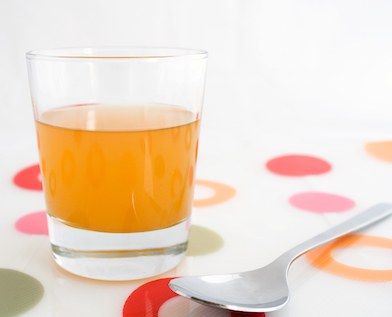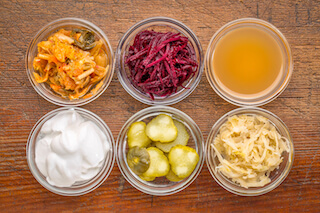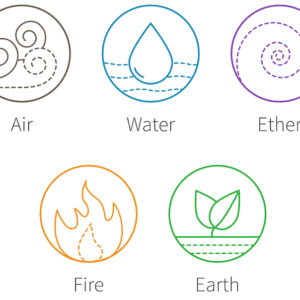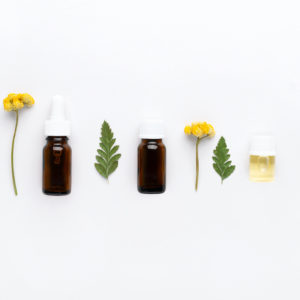Ahh springtime. The flowers and trees are blooming, and the birds and bees have come to life. But for nearly 30 million Americans who suffer from seasonal allergies, springtime represents itching, sneezing, watery eyes, coughing, asthma attacks, and skin irritations. And it’s not just spring either; seasonal allergies can happen in the fall and even in the dead heat of summer or the cold of winter. Sadly, like most medications, prescription allergy medicines come with a host of undesirable side effects. Fortunately, there are some natural remedies for allergies that can bring some relief.
What Causes Allergies?
Allergic reactions are an immune system over-reaction to a particular allergen, such as pollen. During an allergic attack, your immune system produces antibodies called Immunoglobulin E (IgE) that identify the allergen as harmful. These antibodies cause the release of histamine in your cells that can cause inflammation of your skin, sinuses, airways, and even your digestive system.
Each type of IgE has a “radar” for a specific type of allergen. This explains why some people are only allergic to one allergen. A person with reactions to many types of allergens has more types of IgE antibodies.

Gut Health and Immunity
The gut in particular profoundly influences the entire immune system. When gut health suffers so does the rest of your body, and the result for many people are allergy symptoms. Maintaining good gut health directly supports the immune system and can prevent allergic reactions of many kinds.
The typical American diet of processed foods devoid of nutrients depletes the beneficial flora of the gut. Additionally, the overuse of antibiotics further destroys the microbiota in the gut, thereby depleting our immune system. Avoiding antibiotics, except when absolutely necessary, protects the fragile environment of the gut and improves proper immune function. Likewise, eating a balanced diet with lots of fresh fruits, vegetables, and whole grains provides necessary nutrition to support a healthy gut.
Natural Remedies for Allergies
Apple Cider Vinegar

Apple cider vinegar (ACV) may prevent the immune system from reacting to certain allergens and producing antibodies. This is because ACV actually downregulates pro-inflammatory cytokines released by the immune system. Some people claim it also helps relieve congestion and mucus production.
How to Use it: Simply drink a teaspoon of apple cider vinegar in a cup of warm water three times a day.
Quercitin
Quercitin is a bioflavonoid derived from vegetables and fruits with strong anti-inflammatory properties. Studies show that it inhibits signaling pathways related to the inflammatory process. This prevents the release of allergy-causing histamine. Another study showed that regular use of quercitin decreased the frequency and severity of allergy-related asthma attacks.
How to Use it: Purchase a quercitin supplement and take according to the labeled instructions. For best results, begin taking the supplement 2-4 weeks prior to allergy season. You can also try drinking Rooibos tea, which contains quercitin.
Probiotics

Supporting good gut health is the best way to strengthen your immune system. Taking probiotics to maintain a healthy microflora can not only decrease allergies, it can benefit your digestive and mental health as well. Learn more about the benefits of probiotics here.
How to Use it: Increase your consumption of fermented foods, such as kombucha, kimchi, miso, tempeh, and pickles. You can also take a quality probiotic supplement, like Life 9.
Butterbur
Butterbur is an herb that many people use to treat migraine headaches as well as to combat allergies. A study that compared the use of butterbur to the prescription allergy drug cetirizine showed that butterbur was as effective as the drug at relieving allergic rhinitis (hay fever).
How to Use it: Purchase butterbur extract and take according to labeled instructions.
Local Honey

Honeybees harvest pollen from plants to produce honey. In theory, when you ingest these minute amounts of the offending plants, your body becomes desensitized to them, thereby preventing allergic flare-ups when you encounter those allergens. Studies show that honey does help decrease hay fever symptoms, but it’s important to consume honey from your local area.
How to Use it: Obtain raw, organic, local honey from your area. Eat a teaspoon or more one to three times a day during allergy season.
Essential Oils
Many essential oils contain compounds that may help combat or relieve some of the symptoms of allergies. Essential oils help reduce bodily inflammation, as well as supporting the immune system. Some people claim that inhaling or applying essential oils topically reduces the frequency and severity of allergic attacks. Additionally, studies show that various essential oils relieve symptoms associated with allergies, including quality of life, sleep quality, and fatigue.
How to Use Them: Obtain pure, therapeutic essential oils and diffuse or apply topically as needed.
Love learning about natural health and wellness?




